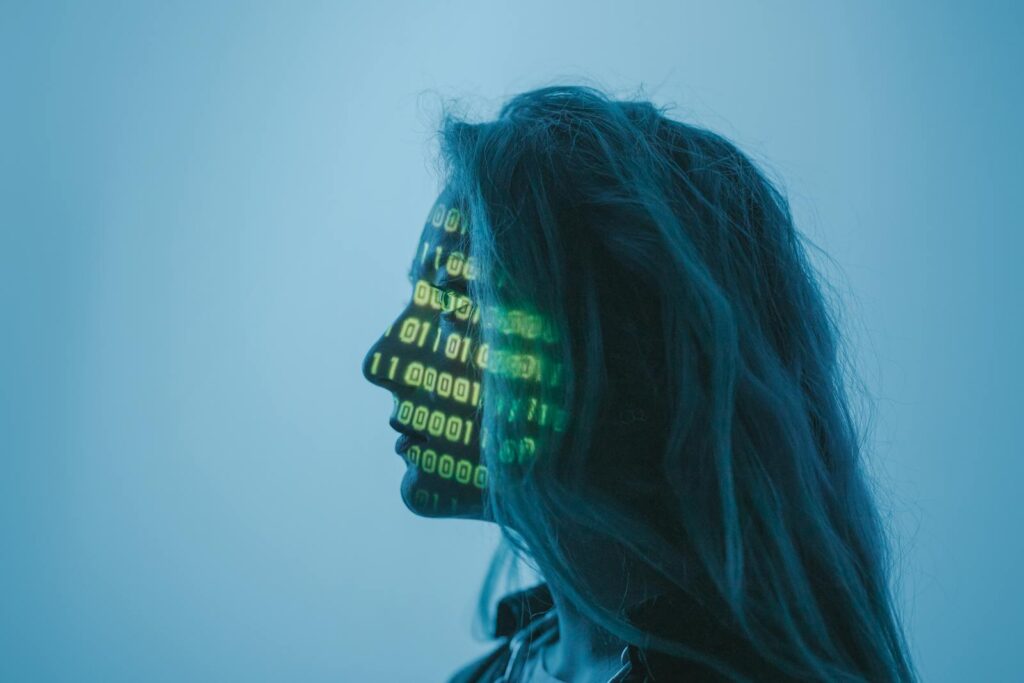Table of Contents
Is AI a Potential Threat?
This is indeed a very important question: Is AI a potential threat? It seems we are gradually losing sight of the primary purpose of AI. People are increasingly utilising AI for various reasons and motives daily. However, with its widespread adoption, we risk forgetting its original intent. While I am not discouraging the use of AI, serious precautions must be taken. Therefore, I will address the question: Is AI a potential threat?
Take a moment to observe your surroundings, particularly on your preferred social media platforms. How much content do you encounter on these platforms that has been generated by artificial intelligence? The answer is likely a significant amount, isn’t it? Some of this AI-generated content is indeed of high quality and quite impressive, while other examples fall short of expectations and are less compelling. However, the crucial point to consider is this: the more we, as human beings, increasingly depend on machines to perform tasks that we ourselves are capable of doing, the more potentially problematic this reliance becomes.
Throughout history, humans have undeniably utilised machines for a vast array of purposes, and this is a generally accepted and beneficial practice. We can all agree that machines have augmented our abilities and improved our lives in countless ways. However, when a machine transcends its role as a mere tool and begins to exert a controlling influence over our thoughts and cognitive processes, rather than simply extending our physical capabilities, this is when the situation becomes genuinely unsettling.
It is certainly true that any period of substantial technological advancement and progress inevitably gives rise to various conspiracy theories and anxieties about the potential negative consequences. Indeed, in the contemporary world we inhabit, there remain individuals who firmly believe that even the smartphone is an inherently malevolent device that people should avoid using at all costs. However, the situation with artificial intelligence presents a distinctly different scenario, one that requires particularly careful and serious consideration. This is precisely why we must examine the implications of AI with the utmost scrutiny and diligence. This is why we have a list of the top 10 AI tools that should be banned.
Importance of AI For Content Creators And Business Growth
I thought before we talk about the potential threat of AI, we should also look at why AI is important.

Artificial Intelligence (AI) has become an essential tool for both content creators and businesses aiming to grow in today’s digital economy. Its ability to simplify tasks, increase productivity, and provide valuable insights makes it a game-changer across industries. Here are five ways AI is transforming content creation and business growth:
1. Boosts Creativity and Efficiency
AI tools help creators brainstorm ideas, write drafts, generate visuals, and even edit content faster. This reduces the time spent on repetitive tasks, giving more room for creativity and innovation.
2. Enhances Audience Engagement
By analysing user data and behaviour, AI recommends the right content to the right audience at the right time. This leads to higher engagement, stronger relationships, and loyal followers or customers.
3. Improves Content Quality
With features like grammar checkers, SEO optimisation, and content enhancement tools, AI ensures that creators and businesses produce high-quality, error-free, and professional content.
4. Drives Smarter Decision-Making
Businesses can use AI-powered analytics to track performance, understand market trends, and predict customer needs. This data-driven approach helps in making informed strategies for sustainable growth.
5. Reduces Costs and Increases ROI
AI automates processes like marketing campaigns, customer support, and content distribution. This not only cuts operational costs but also maximises return on investment by reaching wider audiences efficiently.
The potential impact of artificial intelligence on human development and existence.
Artificial intelligence is not just a tool for convenience—it is shaping the very path of human progress. As technology continues to advance, AI will influence how we live, think, and even understand ourselves. Below are five potential impacts:
1. Acceleration of Knowledge and Discovery
AI can process vast amounts of data faster than humans, opening new frontiers in medicine, physics, and space exploration. This may lead to breakthroughs in curing diseases, extending life expectancy, and even understanding the mysteries of the universe.
2. Transformation of Human Labour
With automation, many traditional jobs may disappear, while new types of work will emerge. This shift will challenge societies to adapt, retrain, and rethink the purpose of human labour beyond survival—possibly redefining work as a pursuit of creativity and meaning.
3. Blurring the Line Between Human and Machine
Advances in robotics, neural interfaces, and AI assistants suggest a future where technology integrates with the human body and mind. This raises deep questions: Will humans still define themselves by their natural limitations or evolve into something more hybrid?
4. Ethical and Spiritual Questions
As AI grows in intelligence, humanity must confront questions about morality, free will, and existence. If machines can mimic human thought, what then makes us uniquely human? These questions touch not only philosophy but also spirituality, where concepts of soul and spirit go beyond what AI can replicate.
5. Global Balance of Power and Survival
AIcould be used for great good—solving climate change, improving agriculture, and advancing education—or for destructive purposes such as autonomous weapons and manipulation of societies. The choices humanity makes will determine whether AI ensures survival or accelerates vanity and destruction.
Conclusion
The question of whether AI is a threat does not have a simple yes or no answer. On one hand, AI holds the potential to transform industries, improve lives, and push the boundaries of science and human progress. On the other hand, its misuse can pose risks to privacy, security, employment, and even global stability.
It is important to remember that AI itself is not inherently good or evil—it is a tool. The real issue lies in the motives and purposes of those who design, control, and deploy it. A hammer can build a house or be used to cause harm; in the same way, AI can serve humanity or exploit it.
This is why the real concern should not be AI itself, but the developers, corporations, and institutions behind it. Are their goals aligned with the well-being of people and the planet, or driven purely by profit, control, or dominance? The critical question for our future is not “Will AI threaten us?” but rather, “Can we trust those who hold the power of AI to use it for good?”







